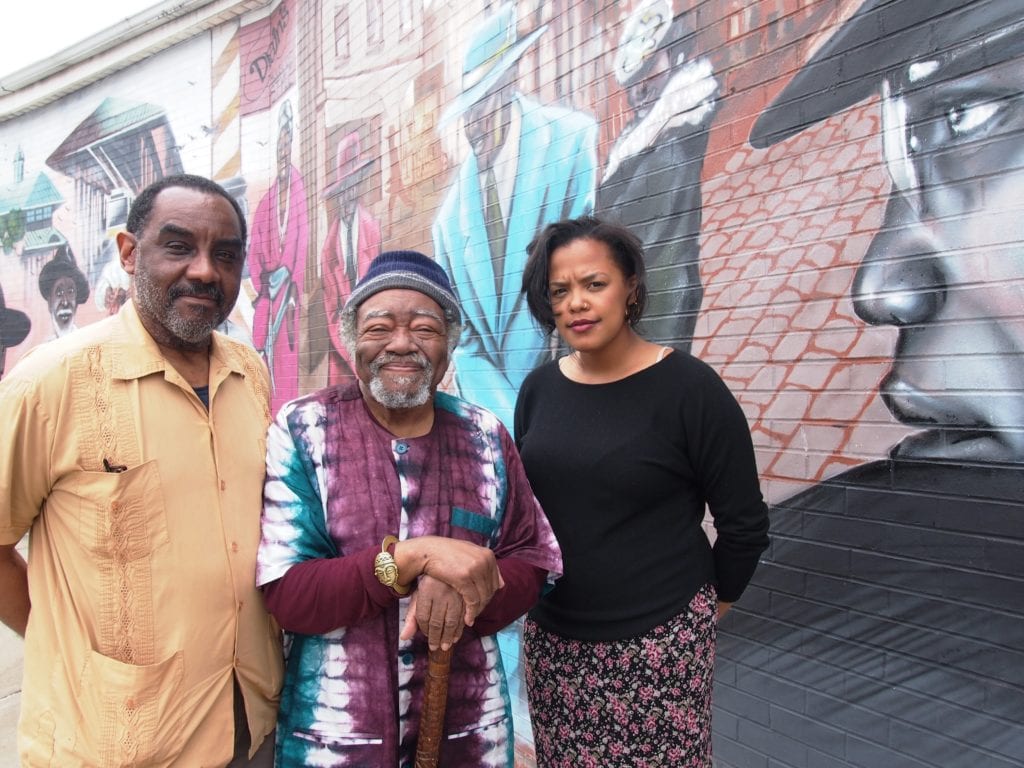
Yawu Miller
Vanessa Silva first encountered Malcolm X in book form, reading the autobiography that has become de rigueur in the political education of black Americans.
“He understood the structural issues affecting black people,” she says. “One thing I love about Malcolm X is that you can see the transformation in his life from prison to where he ended up fighting oppression on all fronts.”
It was forty years earlier when Askia Toure first heard a young Muslim minister named Malcolm X, already drawing crowds in the thousands to his street-corner discourses.
“It was such an experience to go up to 125th Street and 7th Avenue,” says Toure who was at the time working as a feature writer for The Liberator, a progressive black magazine published out of Harlem. “His speeches would sometimes last four hours. He would run through all the aspects of our condition, key things about our history. How in order for us to have true success, that we would have to come together and struggle in a united front.”
Thursday, on Malcolm X’s birthday, Silva is bringing Toure to the Codman Square Library for a panel discussion of the fiery human rights advocate’s impact on social movements. The discussion will take place from 5:30 p.m. to 7:45 p.m.
That Malcolm X, who was assassinated 50 years ago, still captures the imagination of generations of social activists of different backgrounds is remarkable. Silva, a Cape Verdean American, says the writings of Malcolm X helped her to understand how white supremacy plays out in the United States.
“I saw how my own mind was colonized,” she said. “I understood that the master’s tools can’t dismantle the master’s house,” she added, borrowing a line from feminist theorist Audre Lorde.
While Martinique-born social theorist Frantz Fannon’s critiques of colonial structures of control inspired generations of anti-racist intellectuals, UMass Boston Professor of Africana Studies Tony Van Der Meer says Malcolm X’s anti-white supremacist rhetoric, spoken in the everyday language of 1950s and ’60s black America, reached a broader audience.
“He’s relevant because he addresses the nature of injustice,” he said. “He speaks in a language that people can understand.”
His influence extended not just to black Americans, Van Der Meer said, but also to whites around the world. Van Der Meer points to Malcolm X’s 1965 address at Oxford University in England.
“It was a room full of white students,” he said. “They were applauding. They were agreeing with him.”
Although much has changed since Malcolm X was assassinated in 1965, he remains relevant because of the persistence of white supremacy, Toure says.
“A lot of the conditions that helped create Malcolm have in some ways gotten worse,” he said, pointing to the recent growth of the U.S. prison population and the ugly rhetoric of the current presidential race. “If anything, it’s intensifying with the rise of Trump and the right wing,” he said. “People are concerned. People are feeling that we’re under serious assault by the right wing. When people are facing things like that, they often resurrect their heroes of the past.”
Thursday’s panel discussion was organized by the Boston Coaltion for Freedom, an ad-hoc committee of local activists. Speakers will include Muhammad Ahmad, Malcolm X’s former political assistant; Saladin Muhammad, a former member of SNCC and the African Peoples Party; Nino Brown, an activists with Mass Action Against Police Brutality and the ANSWER Coalition; Lanise Frazier of Black Lives Matter Boston; Michelle Santana of We Are The Ones and Services Employees International Union organizer Khalida Smalls.
The forum will be the first public event of the Coalition for Freedom, according to Silva.
“We’re in our early stages,” she said. “We’re still working out our mission and structure, but we want to spark dialogue. We want to link working people with movements.”






